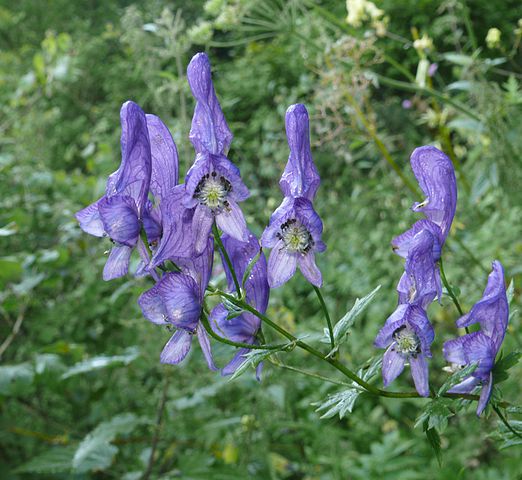Monkshood, scientifically known as Aconitum, is a genus of flowering plants that includes several species commonly known as wolfsbane or monkshood. While these plants are known for their distinctive and often attractive flowers, they are also highly toxic. Here’s an exploration of the impact of monkshood on our lives:
1. Botanical Overview:
- Monkshood plants are herbaceous perennials with distinctive hood-shaped flowers, which give them their common name.
- The plant contains alkaloids, particularly aconitine, which can be lethal even in small amounts.

2. Historical Uses:
- Historically, monkshood has been associated with both medicinal and toxic uses.
- In traditional medicine, extracts from certain Aconitum species were used in minute amounts for specific conditions, but this is no longer considered safe or advisable.
3. Toxicity and Poisoning:
- All parts of the monkshood plant are highly toxic, and ingestion can lead to severe poisoning.
- Symptoms of monkshood poisoning include nausea, vomiting, convulsions, respiratory failure, and death.
4. Cultural and Symbolic Significance:
- Monkshood has been associated with folklore, superstitions, and traditional beliefs. In some cultures, it has been linked to magical or ritualistic practices.
- The toxicity of monkshood has also contributed to its symbolic associations with danger.
5. Gardening and Landscaping:
- Despite its toxicity, some gardeners cultivate monkshood for its ornamental value. The hood-shaped flowers can add aesthetic appeal to gardens.
- Gardeners and landscapers, however, need to be aware of the plant’s toxicity and take precautions when handling it.
6. Regulation and Control:
- Due to its toxicity and potential danger, there may be regulations or guidelines in certain regions regarding the cultivation and sale of monkshood.
7. Traditional Medicine Practices:
- In some traditional medicine practices, monkshood was used with extreme caution and only by experienced herbalists. However, such practices are generally discouraged today due to the high risk of toxicity.
8. Scientific Research:
- Aconitine, the toxic alkaloid found in monkshood, has been studied for its potential pharmacological effects. However, the risks associated with its toxicity overshadow any potential benefits.
9. Caution and Awareness:
- The impact of monkshood on our lives is characterized by caution and awareness. People need to be informed about its toxicity to prevent accidental ingestion or exposure.
10. Conservation Concerns:
- In some regions, there might be concerns about the spread of monkshood in natural habitats, especially if it is not native.
In conclusion, monkshood has had a historical impact on our lives, from its traditional uses to its symbolic associations. In modern times, its impact is marked by caution and awareness of its extreme toxicity, discouraging any use that might pose a risk to human and animal health. If you encounter monkshood in a natural or cultivated setting, it’s important to exercise caution and seek professional guidance if necessary.












